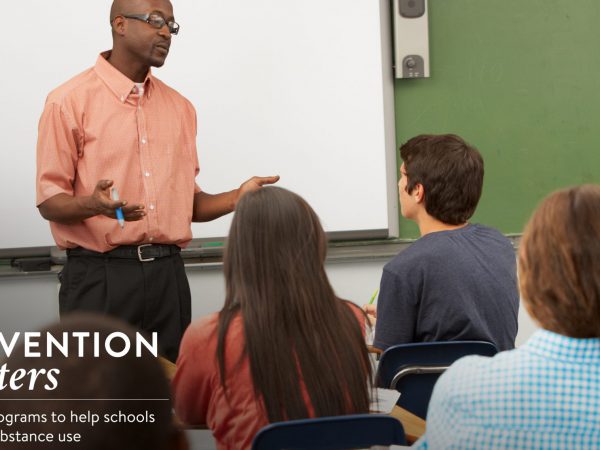Claire Fiddian-Green is the President & CEO of the Richard M. Fairbanks Foundation.
The opioid epidemic was recently declared a national public health emergency – and for good reason. In Indiana, an adult is now more likely to die from a drug overdose than a motor vehicle accident. But opioids aren’t the only substances fueling our addiction crisis. For example, 151,000 Hoosier children who are now under the age of 18 will ultimately die prematurely from smoking. And alcohol, marijuana and methamphetamine use are of continued concern.
Substance use often begins in middle school and worsens through high school. Nationwide, 18 percent of students report having used a prescription drug for a non-medical reason by their senior year of high school. And nearly 90 percent of smokers start by age 18. We can’t help but wonder: what if people could avoid becoming addicted to drugs in the first place?
The good news is that research shows schools can play an important role in reducing substance use by delivering evidence-based prevention programs to students in the classroom. Proven prevention programs equip students with skills that not only help them avoid drugs, but also help improve their academic achievement, attendance, classroom behavior and social and emotional well-being. These programs can reduce bullying and violence as well. But according to a recent survey, only 11 percent of Marion County schools report using an evidence-based prevention program. Of the schools that do not have evidence-based programs in place, many cite insufficient time during the school day and lack of funding as key barriers to implementation.
Schools need support to find the proven prevention programs that work best for their students as well as the adults in their school buildings. That is why the Richard M. Fairbanks Foundation, through a new grant initiative called 예방 사항, will award up to $12 million over three years to Marion County schools to reduce students’ substance use. This initiative will give all eligible public and accredited private K-12 schools in Marion County the opportunity to access funding and connect with prevention experts who will provide free, step-by-step guidance to help: 1) identify the proven prevention program that best meets the needs of each applicant’s students, staff and school environment, and 2) develop a plan for sustainable implementation.
We invite you to refer interested Marion County schools to our webpage, RMFF.org/PreventionMatters. We hope you will help us spread the word about this new grant opportunity – and help us fight back against the opioid crisis and other addiction challenges facing our community.
Tagged in: Claire Fiddian-Green, Marion County, 예방 사항, 리처드 M. 페어뱅크스 재단, School-Based Prevention



